Obituary: Hezbollah military commander Mustafa Badreddine
- Published
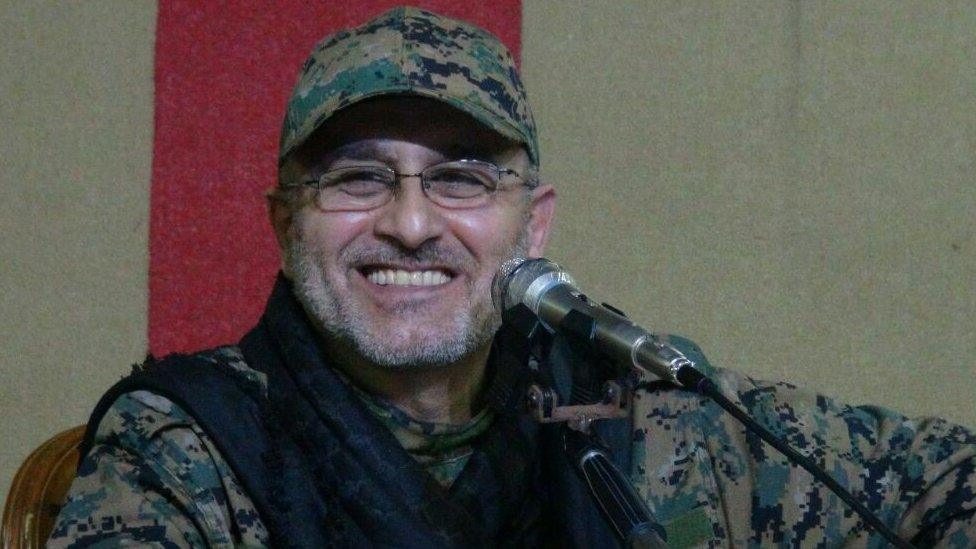
Mustafa Amine Badreddine has been involved in Hezbollah military operations since 1982
Mustafa Amine Badreddine, who has been killed in Syria, was a top Hezbollah military commander.
He was killed by jihadist artillery fire on a Hezbollah base near Damascus airport, the group said.
His death is seen as the biggest blow to the Lebanese Shia Islamist movement since the assassination, external of its military chief Imad Mughniyeh - Badreddine's cousin and brother-in-law - in 2008.
The US said, external last year that Badreddine had been responsible since 2011 for Hezbollah's military operations in Syria, where the group has helped its main backer Iran prop up President Bashar al-Assad.
Thousands of Hezbollah members are fighting alongside Syrian government forces on battlefields across the country and hundreds have been killed.
Badreddine, known for his expertise in explosives, reportedly sat on Hezbollah's Shura Council and served as an adviser to the group's secretary-general, Hassan Nasrallah, accompanying him on visits to Damascus.
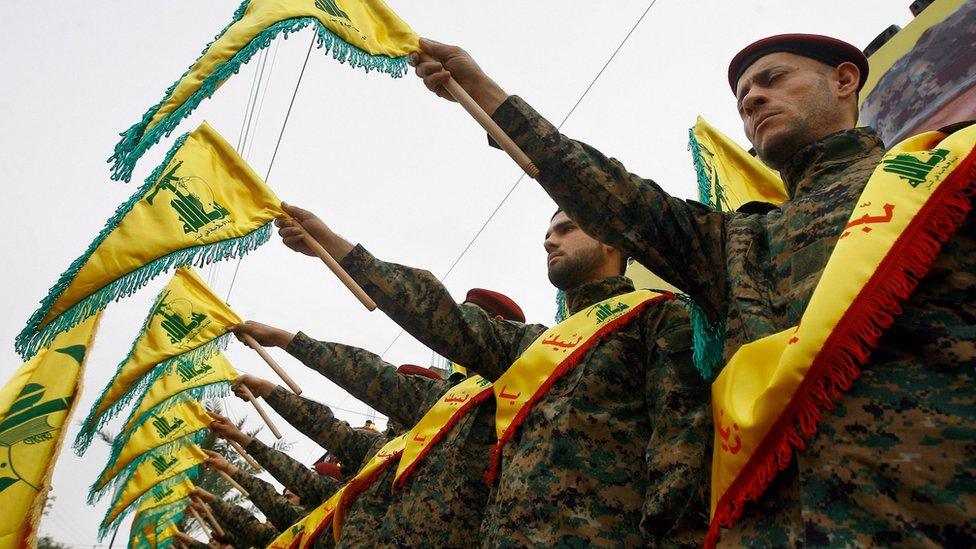
Hezbollah has sent thousands of fighters to Syria in support of President Bashar al-Assad
He was also the most prominent of five men linked to Hezbollah being tried in absentia, external by the Special Tribunal for Lebanon (STL) at The Hague, accused of murdering former Lebanese Prime Minister Rafik Hariri in 2005.
'Prison escape'
Nicknamed "Dhu al-Fiqar", after the legendary sword of Imam Ali, Badreddine was born in 1961, external in the southern Beirut suburb of Ghobeiry.
Little is known about Badreddine's early years, but Hezbollah said he had taken part in operations by its military wing, the Islamic Resistance, since 1982.
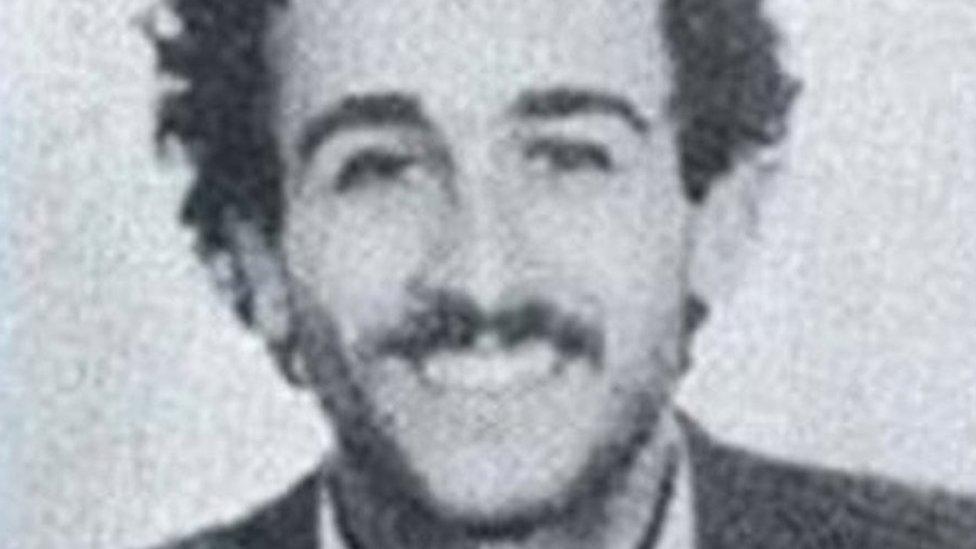
There are very few images available of Badreddine
One Hezbollah member is reported to have, external told Canadian Security Intelligence Service (CSIS) agents during an interrogation that Mughniyeh had been Badreddine's "teacher in terrorism".
They are alleged to have worked together on the October 1983 bombing of the US Marine Corps and French army barracks in Beirut that killed 305 people.
The following year, a court in Kuwait sentenced a 23-year-old man named Elias Fouad Saab to death after convicting him in connection with the December 1983 suicide car bomb attacks on the US and French embassies there, which were blamed on Hezbollah.
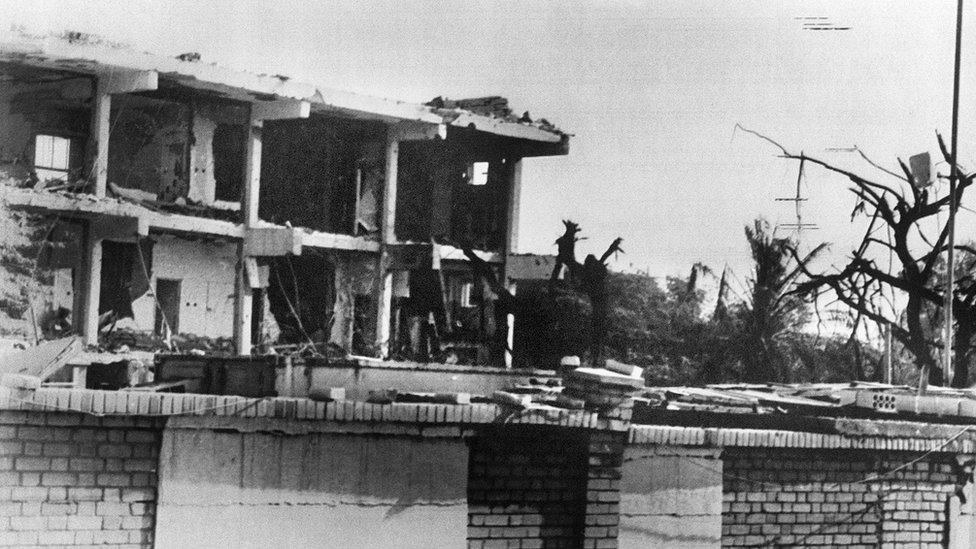
Badreddine was convicted in Kuwait in connection with the bombing of the US embassy
In an effort to free Saab and the 16 other Lebanese and Iraqis convicted alongside him, Mughniyeh is alleged, external to have organised the hijackings of Kuwaiti airliners, a kidnapping and an attempted assassination of the emir of Kuwait.
Saab eventually escaped, external from prison when Saddam Hussein's Iraq invaded Kuwait in 1990 and was reportedly smuggled out of the country by members of the Iranian Revolutionary Guards. According to STL prosecutors, Elias Fouad Saab was a known alias of Mr Badreddine.
'Untraceable ghost'
Badreddine is subsequently believed to have facilitated attacks, external against the Israeli military and, after the US-led invasion in 2003, American and British troops in Iraq.
He is also alleged to have taken "overall control" of the suicide car bomb attack that killed Rafik Hariri and 21 others in Beirut in February 2005.
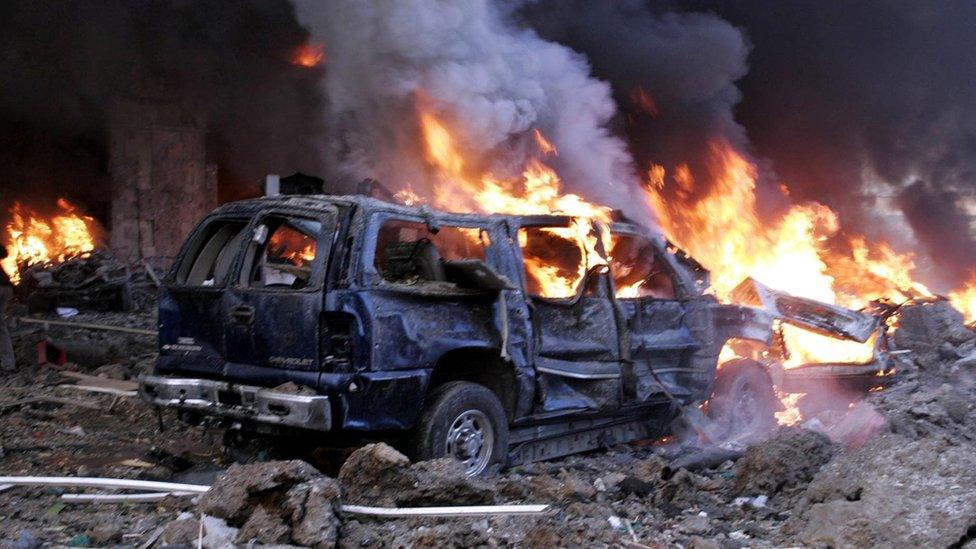
Badreddine was being tried in absentia over the 2005 assassination of Rafik Hariri
The STL indictment, external, issued in 2011, says analysis of mobile phone records shows that between 1 January 2005 and 14 February 2005, Badreddine was in contact 59 times with Salim Jamil Ayyash, a fellow defendant who prosecutors say co-ordinated the assassination team.
Badreddine is alleged to have issued the final authorisation for the attack just under an hour before it happened, having earlier spoken by phone with Mughniyeh.
STL prosecutors also revealed, external that there were almost no official records relating to Badreddine, who they said passed "as an unrecognisable and untraceable ghost throughout Lebanon, leaving no footprint".
The prosecutors said Badreddine achieved this by using pseudonyms, as he appeared to do in Kuwait. While planning the bombing, they alleged, he presented himself as Sami Issa - the registered owner of three jewellery shops, an apartment in Jounieh and a motor boat, who said he was from a Christian village.
Hezbollah has denied any involvement in the Hariri assassination.
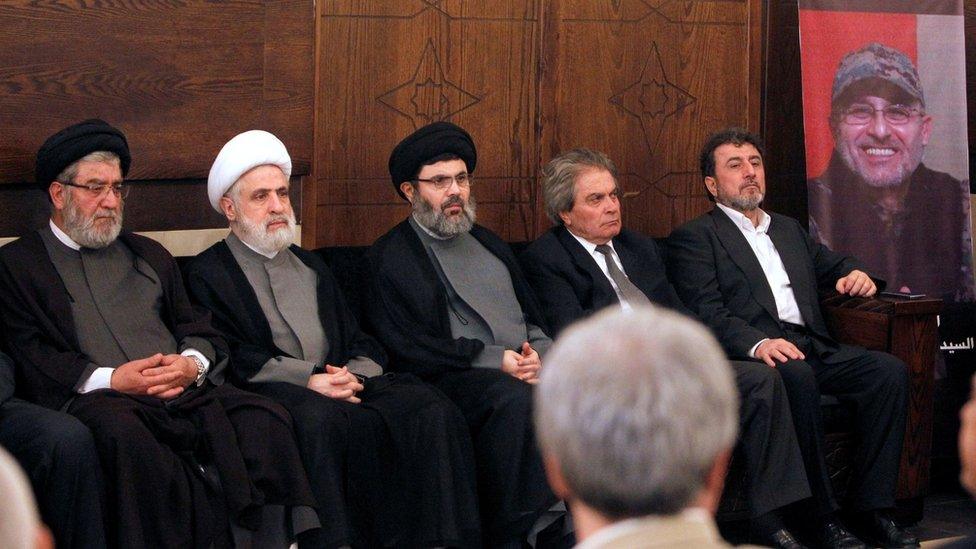
Hezbollah said Badreddine was a "great jihadist leader"
After Mughniyeh was killed in a car bombing in Damascus in 2008 - reportedly the result of a joint operation, external by Israel's Mossad spy agency and the US Central Intelligence Agency - Badreddine is believed to have taken over most of his duties as commander of Hezbollah's military wing.
Badreddine was himself targeted for assassination in January 2015, when a suspected Israeli air strike in the Syrian Golan Heights killed six Hezbollah fighters, including Mughniyeh's son Jihad and an Iranian Revolutionary Guards general, the New York Times reported, external, citing an intelligence operative in the region. Badreddine had dropped out of the gathering at the last minute, it said.
His death was initially blamed on Israel, Hezbollah's chief enemy.
But Hezbollah later said its commander had been killed in a bombardment carried out by Sunni extremists. It has not named any of the groups.
Update 23 May, 2016: The death toll in the 1983 Beirut bombings has been amended to include all the fatalities.